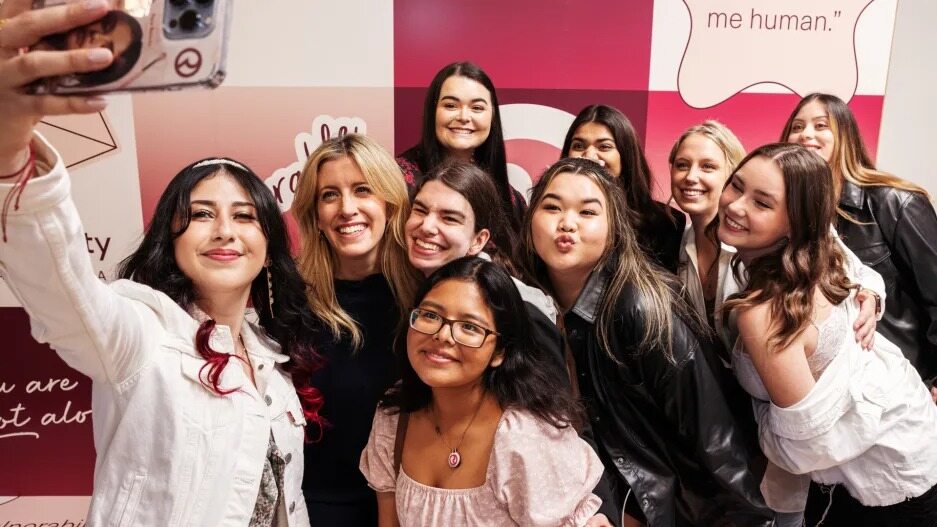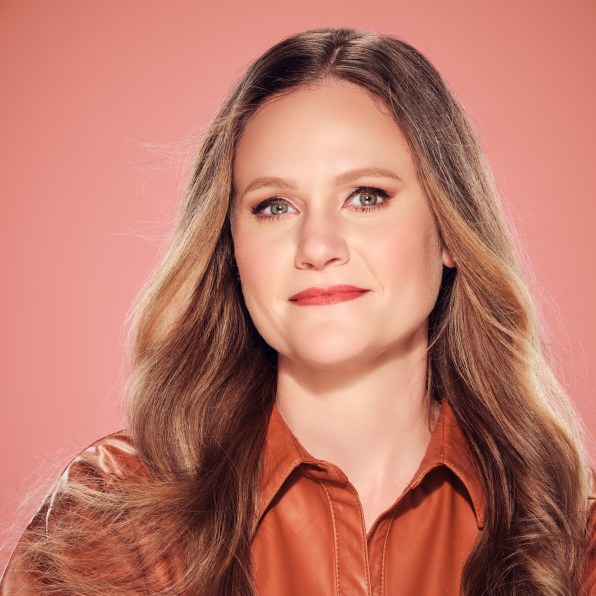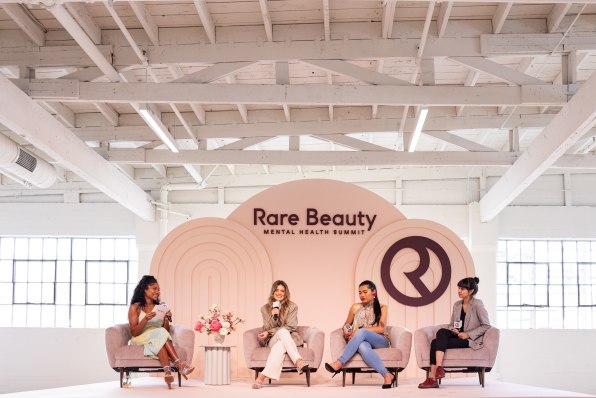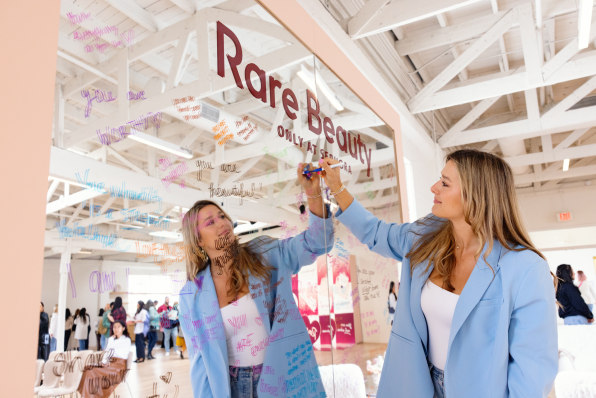- | 8:00 am
How Selena Gomez’s Rare Beauty brings mental health advocacy to the office
Since launching in 2020, Selena Gomez has placed mental health at the core of Rare Beauty’s business.

The conversation around mental health has become too loud to ignore, particularly in the workplace.
According to a survey from the American Psychological Association, 71% of workers believe employers are more concerned about their staff’s mental health than in the past. And 81% said they’ll look for workplaces that support mental health when seeking future job opportunities. Employers addressing mental health concerns in the workplace isn’t just something nice to do; it directly affects a company’s bottom line, since depression and anxiety costs companies $1 trillion per year globally due to lost work days.
So it makes sense that more companies are taking employee mental health seriously—even more so when it’s the focal point of a brand’s mission.
In 2020, Selena Gomez launched her makeup line Rare Beauty in tandem with the Rare Impact Fund, an initiative aiming to raise $100 million over the next 10 years to increase access to mental health resources. One percent of Rare Beauty’s sales goes to the fund, with additional money coming from philanthropic organizations. To date, Rare Impact has raised more than $5 million and invested $3 million to 23 grantees expanding access to mental health services worldwide, including the Black Teacher Project, Trans Lifeline, and the Friends of the Semel Institute.

Rare Beauty entered an already crowded cosmetics industry filled with other celebrity-founded brands. But from the beginning, Cohen says they aimed to differentiate the brand by focusing on promoting self-acceptance and using makeup to embrace what makes the wearer unique, instead of covering up imperfections. That messaging correlates to promoting mental health, and Gomez has been candid over the years in sharing her own experiences with anxiety, depression, and bipolar disorder.
Starting the conversation around mental health, and subsequently building a brand with mental health at its core, has created a community “like nothing many of us have ever seen before,” Cohen says, “particularly in the brand space.”
Back in 2020, Rare Beauty launched weekly virtual chats to create a space for its community to talk about mental health. That initiative spilled over into real life earlier in May when the company hosted its first-ever in-person summit. The Rare Beauty Mental Health Summit brought together 150 thought leaders, creators, health experts, and community members in Los Angeles with nearly 50,000 people joining virtually via a TikTok livestream.

In addition to funding mental health resources and creating communities virtually and IRL, Rare Beauty has launched Your Words Matter, an education campaign offering guidance in how to talk about mental health; cohosted the first White House Mental Health Youth Action Forum; and launched an ambassador program to help spread the company’s mission.

Rare Beauty’s efforts aren’t just external-facing, says Cohen. “If you’re building a purpose-driven brand, it can’t just be what people see on the outside,” Cohen says. “It has to come from within.”
At Rare Beauty, every employee is trained in Mental Health First Aid, a series of courses from the National Council for Mental Wellbeing. The company also has mental health days, i.e. paid time off to do things that support mental health; a weekly wellness program featuring different wellness experts leading team members in activities like yoga and breath work, as well as a mental health reimbursement program for anything from therapy to workout classes.
Cohen says a crucial factor in building out Rare Beauty’s internal mental health programs has been listening to what employees want through simple questionnaires, surveys, and team meetings. “[It’s creating] the ability to communicate up, so that each team member feels like they can communicate to their managers and ideas can be brought to the top,” Cohen says.
Here are her other top tips for creating a purpose-driven brand that practices what it preaches:
HAVE A DEDICATED TEAM
“If these are responsibilities that are falling across departments, they’re no one’s priority. I was hired before this brand launched, as I mentioned, [and] it was an incredibly important position to the company and to our founder. I think that made a statement in and of itself.”
DON’T GIVE INTO DISCOURAGEMENT
“In this work, there can always be more. You can always feel like you’re not doing enough. But when you try to boil the ocean, you’re not really doing much. Don’t let perfection be the enemy of success.”
BE INTENTIONAL IN PICKING YOUR PURPOSE
“What aligns with your company? What aligns with its people? And what do you feel like you actually have the expertise in? I think that’s often where companies fall short. They want to invest in climate change or food insecurity, but nothing within their business touches those issues at all. And so you’re trying to fit a square peg into a round hole. For us, mental health touches everything. It touches racial inequality. It touches the climate crisis. So we’re tangentially involved in all these other issues, but the broad scope is really around mental health and self-acceptance, which is one of the main issues for the community and the customers that we work with every day.”
LISTEN TO WHAT CUSTOMERS AND EMPLOYEES WANT
“Make sure you’re not doing anything in a silo. It’s really easy to lose sight of the voices in your company when you’re sitting at a certain level. And so for that, I’d encourage those conversations—but it’s not just enough to have those conversations. You have to create the environment to enable younger, earlier career employees to feel comfortable speaking up. Say you hosted a meeting or a town hall—make sure you’re allowing folks to submit a question ahead of the meeting, so they’re anonymous. You have to think of those pieces, so that you are creating the right environment to actually hear from everyone across the company.”







































